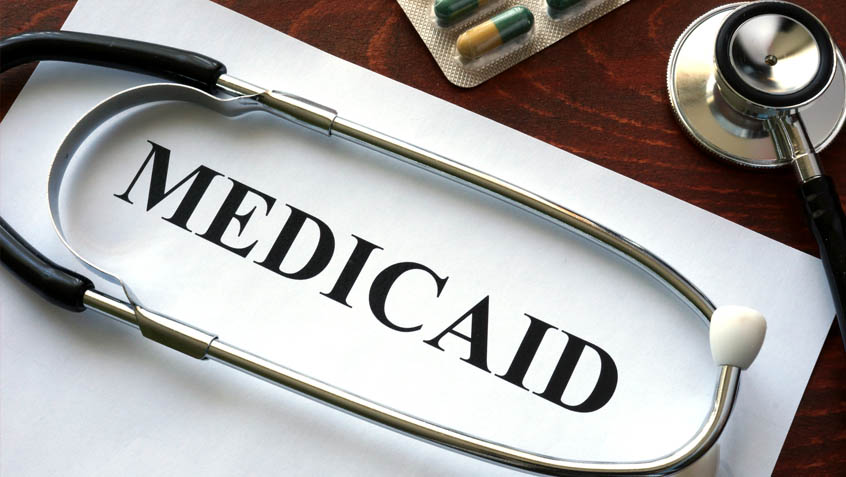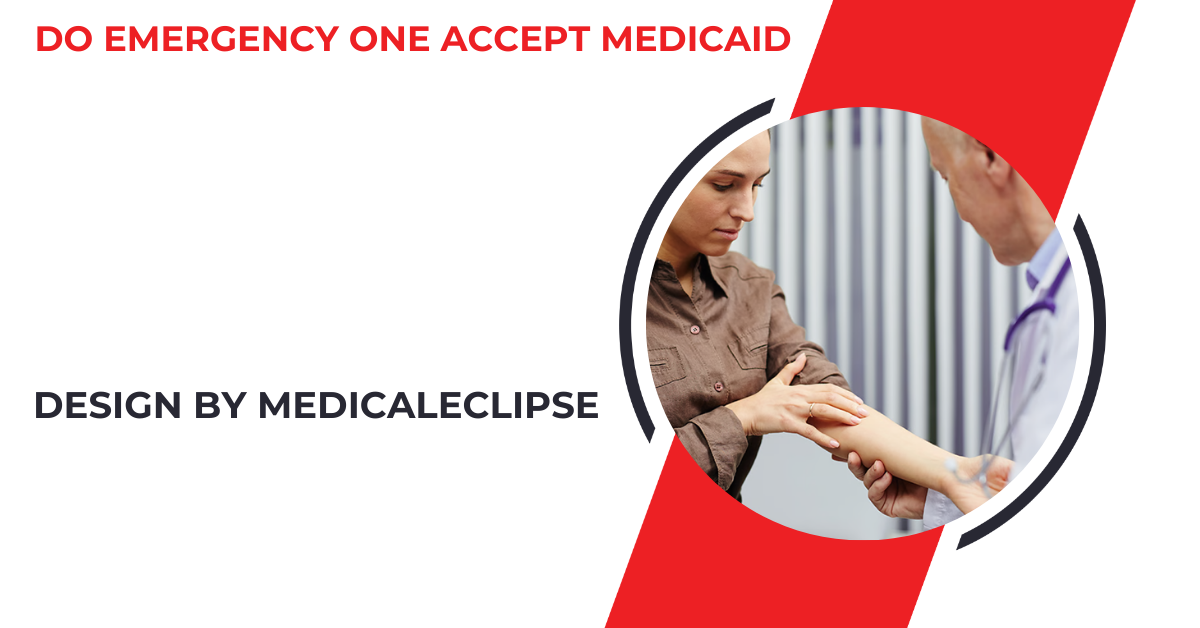Emergency One accepts Medicaid at many locations, but acceptance varies by clinic, state, and plan type. Verify coverage before seeking care.
When you face a medical emergency, understanding which healthcare facilities accept your insurance can provide peace of mind. For millions of people relying on Medicaid, access to affordable healthcare is a crucial concern.Emergency One is a popular provider of urgent care and emergency medical services, but it’s important to know if they accept Medicaid before seeking care.
In this detailed guide, we will explore everything you need to know about Emergency One, Medicaid coverage, and how to navigate your healthcare needs confidently.
What is Emergency One?
Emergency One is a healthcare provider that offers a range of services designed to meet patients’ urgent and non-emergency medical needs. Their primary focus is on providing efficient, high-quality care without long wait times, which has made them a popular choice for people seeking convenient medical attention.
Emergency One’s Services Include:
- Urgent Care Services: Treatment for minor injuries, infections, flu-like symptoms, and other non-life-threatening conditions.
- Occupational Health: Services like physical exams, drug testing, and worker’s compensation management for employers and employees.
- Physical Examinations: Routine physical exams for school, sports, or employment purposes.
- Vaccinations and Immunizations: Vaccinations such as flu shots, travel immunizations, and more.
Emergency One aims to fill the gap between emergency rooms and primary care providers, offering timely care without the need for a scheduled appointment.
Understanding Medicaid and Its Coverage:

Medicaid is a federal and state program providing medical coverage to people with limited income. It covers services like hospital care, preventive care, mental health, and prescriptions, with coverage varying by state.
Medicaid helps millions of individuals, including:
- Low-Income Families: Providing access to healthcare for parents and children.
- Pregnant Women: Ensuring that prenatal and maternity care is accessible to those who need it.
- Elderly Individuals: Supplementing healthcare for seniors with limited financial resources.
- People with Disabilities: Covering both medical services and long-term care options.
It’s essential to confirm whether a healthcare provider, like Emergency One, accepts Medicaid to ensure that your treatment is covered and affordable.
Does Emergency One Accept Medicaid?
Many Emergency One locations accept Medicaid, but acceptance varies by state, clinic policies, and Medicaid plan type.
Here are some key factors to consider regarding Medicaid acceptance at Emergency One:
- Location Matters: Emergency One operates multiple facilities, and not all locations may accept Medicaid. Whether a location is listed as an in-network provider for Medicaid depends on agreements made between the clinic and the state Medicaid program.
- Type of Medicaid Plan: Medicaid has different managed care plans. Some plans may require you to see providers within a certain network, while others have more flexibility. This means that not all Medicaid beneficiaries will be covered in the same way at Emergency One.
How to Verify Medicaid Acceptance at Emergency One:
To avoid surprises or unexpected costs, it’s critical to verify if Emergency One accepts Medicaid before seeking treatment. Here are some strategies to help you confirm coverage:
- Call the Emergency One Clinic Directly:This is often the fastest way to get accurate information. Ask the clinic’s staff if they accept Medicaid and whether your specific Medicaid plan is covered.
- Check the Emergency One Website:Many healthcare providers list the insurance plans they accept on their websites. By checking the Emergency One website, you can find the most up-to-date information regarding insurance coverage.
- Contact Your Medicaid Managed Care Plan:If you have a Medicaid managed care plan, you can contact them directly to find out if Emergency One is an in-network provider. Most managed care plans also have online directories where you can search for participating providers.
- Check State Medicaid Resources:Each state maintains a Medicaid website that provides resources and directories of participating healthcare providers. This can help you determine if Emergency One is part of your Medicaid plan’s network.
Also Read: Sanford Area Soccer League Medical Release Form – A Comprehensive Guide
Medicaid-Covered Services Available at Emergency One:
The types of services covered by Medicaid when you visit Emergency One will depend on your specific plan, your state, and the services needed. Here is a breakdown of the services that Medicaid might cover:
Urgent Care Visits:
If you’re dealing with a minor illness or injury that doesn’t require emergency room treatment—such as a sprain, minor fracture, fever, or respiratory infection—Medicaid generally covers these urgent care visits.
Diagnostic Testing:
Laboratory tests, X-rays, and other diagnostic services provided during your visit are typically covered if they are necessary to diagnose or treat your condition.
Preventive Services:
Vaccinations, screenings, and other preventive services may also be covered. For example, flu shots, which are available at most Emergency One clinics, are often fully covered by Medicaid.
Follow-Up Care:
If follow-up care is recommended by your healthcare provider, such as a re-evaluation of an injury, Medicaid might cover these additional visits depending on medical necessity.
Prescription Medications:
After your visit, the healthcare provider might prescribe medication to help with recovery. Medicaid generally covers prescription medications if they are medically necessary and provided through a pharmacy that accepts Medicaid.
Steps to Minimize Out-of-Pocket Costs at Emergency One:
Healthcare can be expensive, even with Medicaid coverage, so it is important to take steps to minimize your out-of-pocket expenses:
- Ask About Costs Upfront:Before receiving treatment, inquire about all potential costs, including copayments or additional fees. Understanding the costs ahead of time will help you plan and avoid surprises.
- Clarify Coverage Before Treatment:Always double-check with the clinic that the service you need is covered under your Medicaid plan. This will prevent you from being billed for services that are not covered.
- Understand Your Copayments and Deductibles:Depending on your Medicaid plan, you may have copays or deductibles for certain services. Make sure you understand what your financial responsibilities are before you receive care.
- Utilize Preventive Services:Medicaid often covers preventive services such as vaccinations, screenings, and annual checkups without requiring copayments. By using these services, you can prevent more serious (and costly) medical issues from developing.
Alternatives to Emergency One If Medicaid Is Not Accepted:

If your local Emergency One clinic doesn’t accept Medicaid or if your specific plan is not accepted, there are several alternatives available to you:
Community Health Centers:
Federally Qualified Health Centers (FQHCs) are nonprofit clinics that provide comprehensive medical care on a sliding fee scale based on your income. These centers accept Medicaid and offer many of the same services as Emergency One, including urgent care.
Urgent Care Clinics That Accept Medicaid:
While Emergency One may not always accept Medicaid, many other urgent care clinics do. A quick online search or a call to your Medicaid managed care provider can help you locate nearby clinics that accept your insurance.
Hospital Emergency Rooms:
In an emergency, a hospital ER is legally obligated to provide care regardless of your ability to pay. Medicaid will cover emergency services, but keep in mind that ER visits are typically more expensive than urgent care visits.
Telehealth Services:
Medicaid covers many telehealth services, which can provide a convenient and affordable alternative to in-person urgent care. You can connect with a healthcare provider online or over the phone to discuss your symptoms, receive a diagnosis, and even get a prescription.
The Importance of Medicaid Acceptance for Urgent Care:
Medicaid is a joint federal and state program that provides medical coverage for individuals with limited income and resources. It covers a variety of services, including hospital care, preventive care, mental health services, and prescription medications.
Each state manages its own Medicaid program, resulting in variations in coverage and eligibility. Overall, Medicaid is essential for ensuring access to healthcare for those in need.
FAQ’s:
1. Does Emergency One accept Medicaid?
Yes, but acceptance depends on the clinic, state, and Medicaid plan.
2. How can I verify Medicaid acceptance?
Call the clinic or check their website and your Medicaid provider.
3. What services are covered by Medicaid?
Urgent care visits, diagnostics, preventive services, follow-up care, and prescriptions.
4. What if Medicaid isn’t accepted?
Use community health centers, other urgent care clinics, ER, or telehealth.
5. How can I reduce costs with Medicaid?
Verify coverage, ask about costs upfront, and use preventive services.
Conclusion:
Emergency One’s acceptance of Medicaid depends on the location, state policies, and specific plan types, so verifying coverage before seeking care is essential. You can contact the clinic directly or check their website for accurate information.
Medicaid provides vital healthcare services, making Emergency One a potentially convenient option for recipients. Understanding your coverage can help alleviate financial stress during emergencies.
Related Post
- What Is Medicaid Exclusion For Funeral Plans – Benefits of Medicaid Funeral Exclusions!
- Banner Desert Medical Center – Trusted Care in Arizona!
- Why Cranberry Femine Health – The Ultimate Natural Wellness Guide for Women!
- What Is The Best Peptide For Bone Health – A Comprehensive Overview!
- Why Is Signify Health Calling Me – Understanding the Purpose Behind the Call!

Leave a Reply